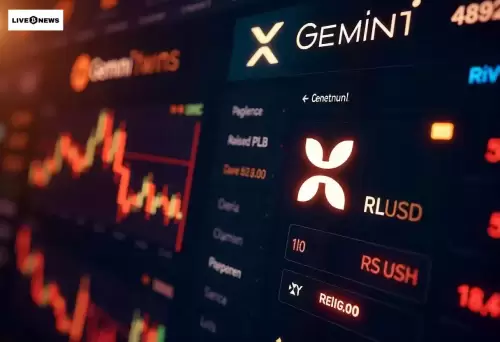 |
|
 |
|
 |
|
 |
|
 |
|
 |
|
 |
|
 |
|
 |
|
 |
|
 |
|
 |
|
 |
|
 |
|
 |
|
ビットコインで最も早い支持者の1人であり、暗号コミュニティで尊敬される声であるジェイムソンロップは、ノードオペレーターの間でビットコインコアの圧倒的な支配について懸念を抱いています。

In a post shared on X, Wednesday, Jameson Lopp, one of Bitcoin’s earliest supporters and a prominent voice in the crypto sphere, expressed his concerns regarding Bitcoin Core’s overwhelming dominance among node operators.
水曜日のXで共有された投稿で、ビットコインの最も初期のサポーターの1人であり、暗号領域の顕著な声であるジェイムソンロップは、ノードオペレーターの間でビットコインコアの圧倒的な支配に関する懸念を表明しました。
The freedom of node operators is to choose which implementation they run. The fact that 96% of nodes run Bitcoin Core is suboptimal IMO. Most alternative clients are either unmaintained or only maintained by a single developer, with no peer review.
ノードオペレーターの自由は、実行する実装を選択することです。ノードの96%がビットコインコアを実行するという事実は、最適ではありません。ほとんどの代替クライアントは、承認されていないか、単一の開発者によってのみ維持されており、ピアレビューはありません。
— Jameson Lopp (@lopplopp) September 6, 2023
- ジェイムソンレース(@lopplopp)2023年9月6日
"The freedom of node operators is to choose which implementation they run. The fact that 96% of nodes run Bitcoin Core is suboptimal IMO. Most alternative clients are either unmaintained or only maintained by a single developer, with no peer review," stated Lopp.
「ノードオペレーターの自由は、どの実装を実行するかを選択することです。ノードの96%がビットコインコアを実行しているという事実は、最適ではありません。ほとんどの代替クライアントは、ピアレビューなしで1人の開発者のみが維持されていないか、維持されています」とLoppは述べています。
This comment, which has sparked discussion within the community, highlights a lesser-known aspect of decentralization at play.
コミュニティ内での議論を引き起こしたこのコメントは、プレイ中の分散化のあまり知られていない側面を強調しています。
While the benefits of stability, consistency, and reliability offered by this standardization are evident, it also raises a potential single point of failure if vulnerabilities or bugs are discovered in the Core codebase.
この標準化によって提供される安定性、一貫性、および信頼性の利点は明らかですが、コアコードベースで脆弱性またはバグが発見された場合、潜在的な単一の障害ポイントも上昇します。
"We need at least a couple of other well-maintained, multi-developer clients for optimal security and resilience of the Bitcoin network," Lopp added.
「ビットコインネットワークの最適なセキュリティと回復力のために、少なくともいくつかの十分に管理されたマルチ開発者クライアントが必要です」とLoppは付け加えました。
However, despite the bleak picture painted for non-Core implementations, Lopp highlighted two projects that are showing promise and could provide alternatives to Bitcoin Core. These projects are BRL and Bliz++
ただし、非コアの実装のために描かれた暗い画像にもかかわらず、LOPPは約束を示しており、ビットコインコアに代わるものを提供できる2つのプロジェクトを強調しました。これらのプロジェクトはBRLとBliz ++です
Both of these projects, although still lagging behind in adoption, are among the few viable options currently demonstrating sustained development outside the Bitcoin Core repository.
これらのプロジェクトは両方とも、まだ採用に遅れをとっていますが、現在ビットコインコアリポジトリの外で持続的な開発を実証している数少ない実行可能なオプションの1つです。
diversity in client software isn't just philosophical—it's practical. Having multiple implementations increases the network's resilience against bugs, exploits, or coordinated attacks. For example, Ethereum has benefited from having several well-maintained clients, which has helped avoid consensus-level issues during major upgrades.
クライアントソフトウェアの多様性は、哲学だけではなく、実用的です。複数の実装を持つことで、バグ、エクスプロイト、または調整された攻撃に対するネットワークの回復力が向上します。たとえば、Ethereumは、いくつかの十分に管理されたクライアントを持つことで恩恵を受けており、これは主要なアップグレード中のコンセンサスレベルの問題を回避するのに役立ちました。
Lopp's warning isn't a call for a mass migration from Core, but rather a plea for more developer attention toward viable alternatives. As Bitcoin matures into a multi-trillion-dollar asset, the security of its underlying network—and the robustness of its software base—becomes even more crucial.
Loppの警告は、Coreからの大規模な移動の呼びかけではなく、実行可能な代替案に対するより多くの開発者の注意の嘆願です。ビットコインが数兆ドルの資産に成熟するにつれて、その基礎となるネットワークのセキュリティとそのソフトウェアベースの堅牢性は、さらに重要です。
This post was originally published on Benzinga
この投稿はもともとBenzingaで公開されました
免責事項:info@kdj.com
提供される情報は取引に関するアドバイスではありません。 kdj.com は、この記事で提供される情報に基づいて行われた投資に対して一切の責任を負いません。暗号通貨は変動性が高いため、十分な調査を行った上で慎重に投資することを強くお勧めします。
このウェブサイトで使用されているコンテンツが著作権を侵害していると思われる場合は、直ちに当社 (info@kdj.com) までご連絡ください。速やかに削除させていただきます。



















![Bonk Coinの価格予測、[水曜日! ] Bonk Coinの価格予測、[水曜日! ]](/uploads/2025/05/07/cryptocurrencies-news/videos/bonk-coin-price-prediction-wednesday/image_500_375.webp)






































